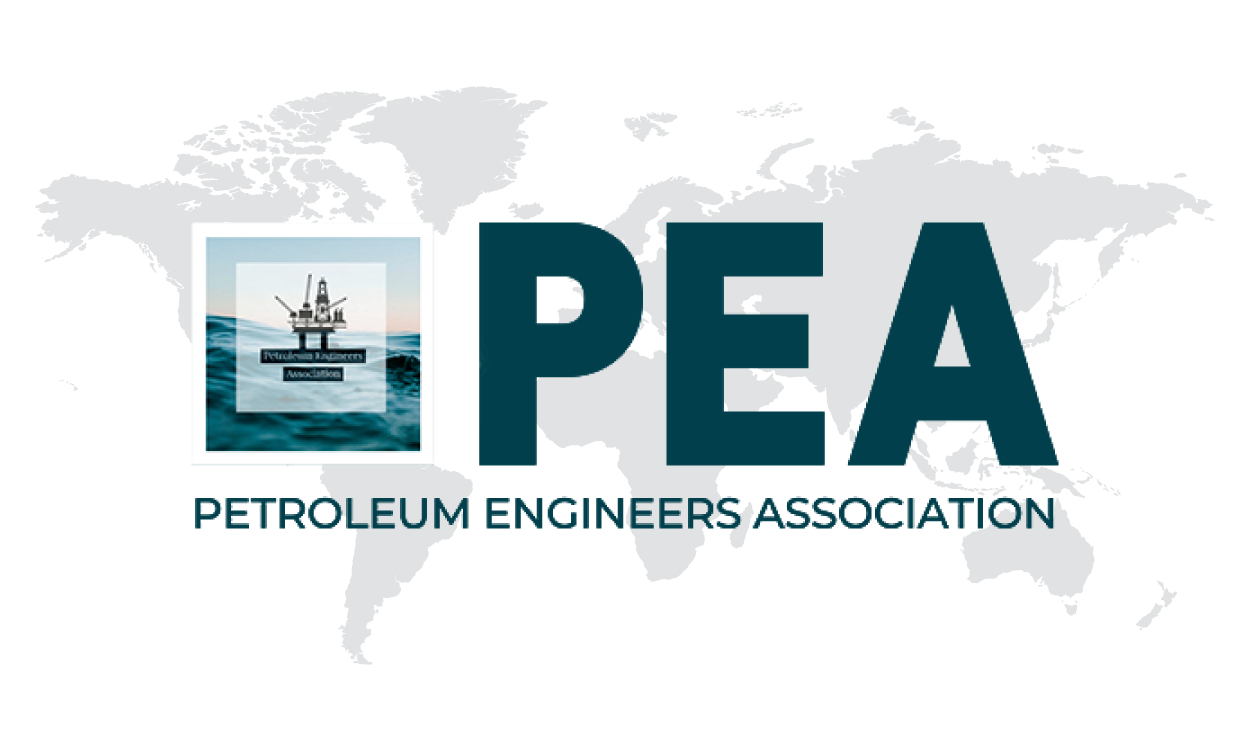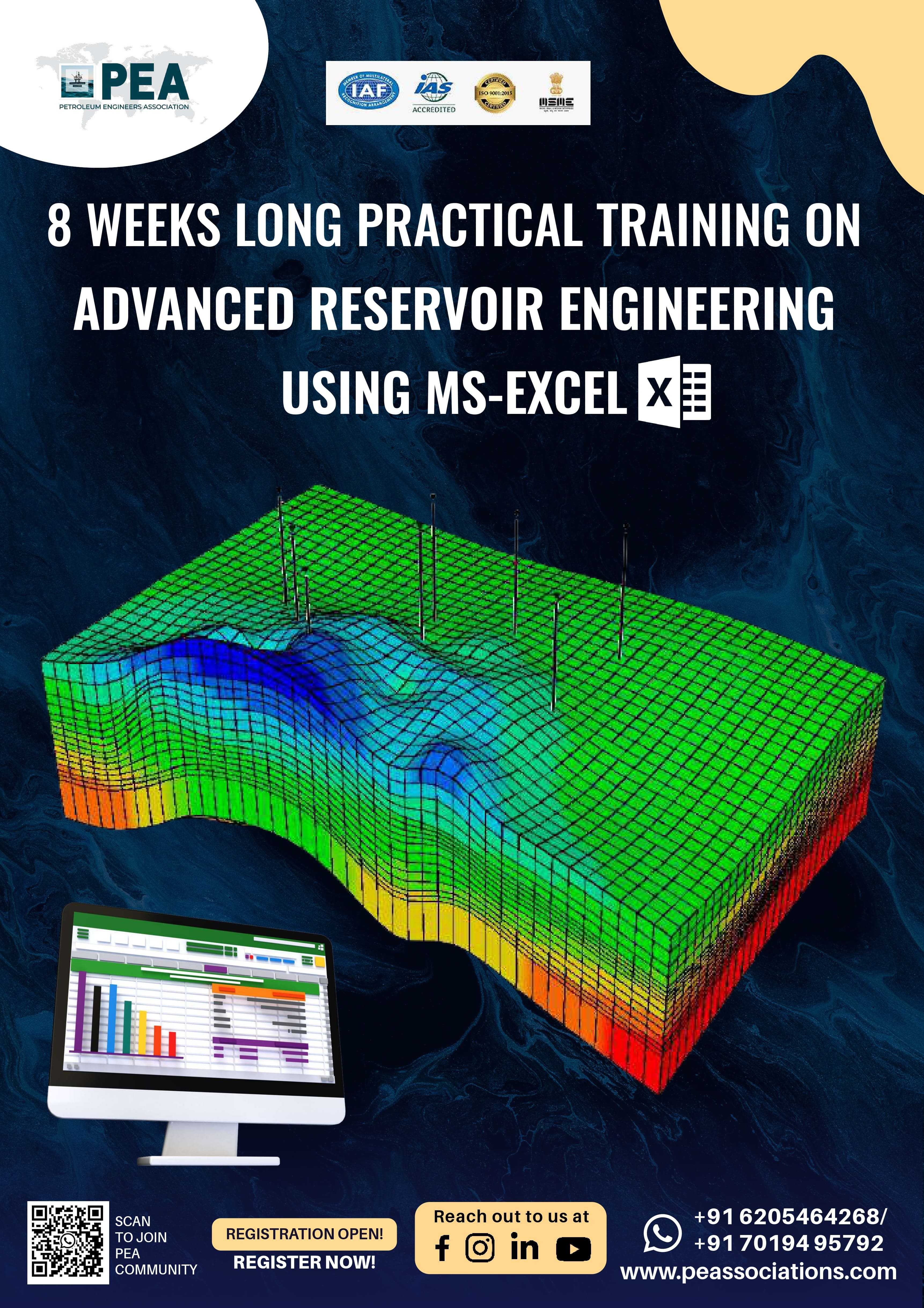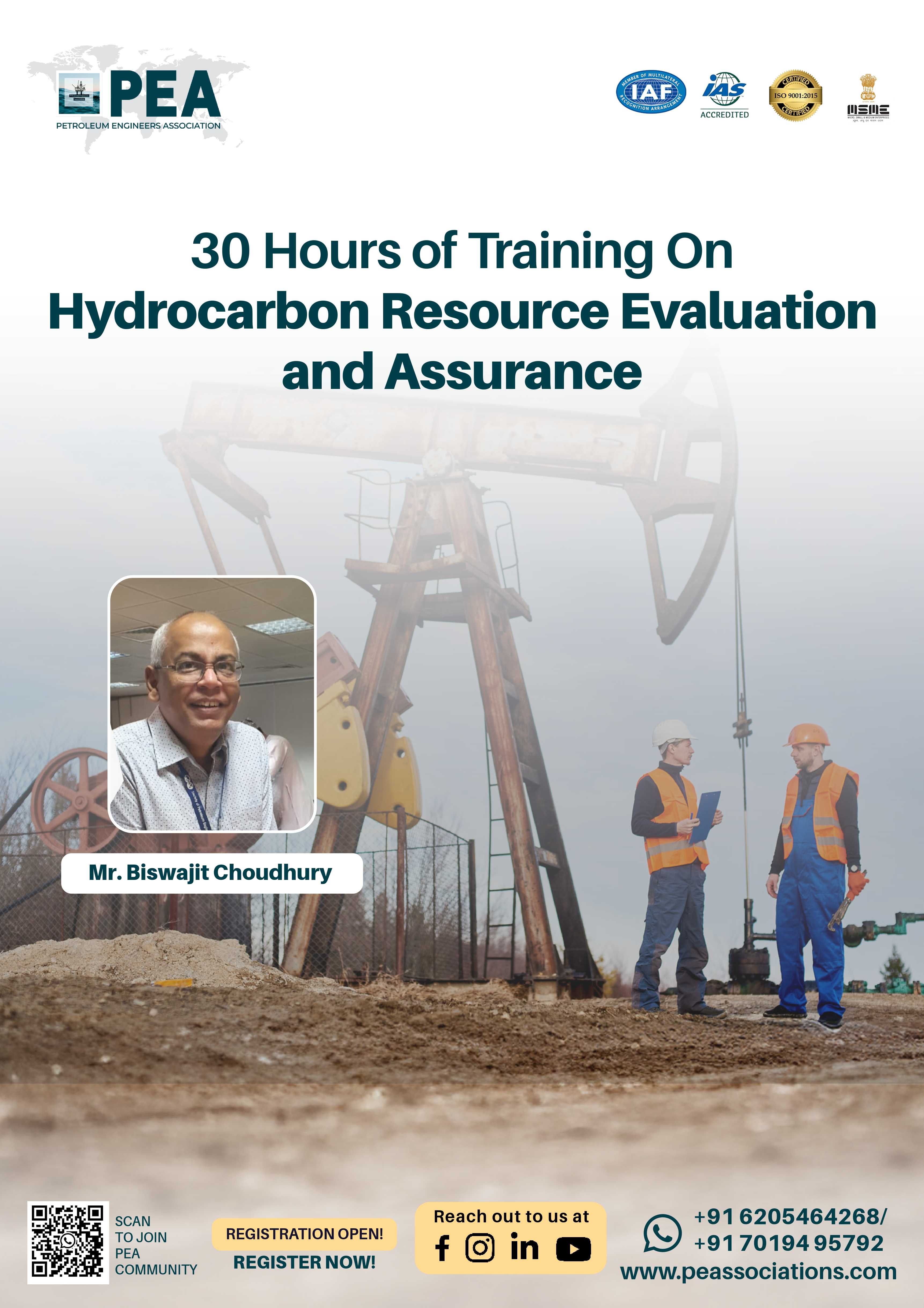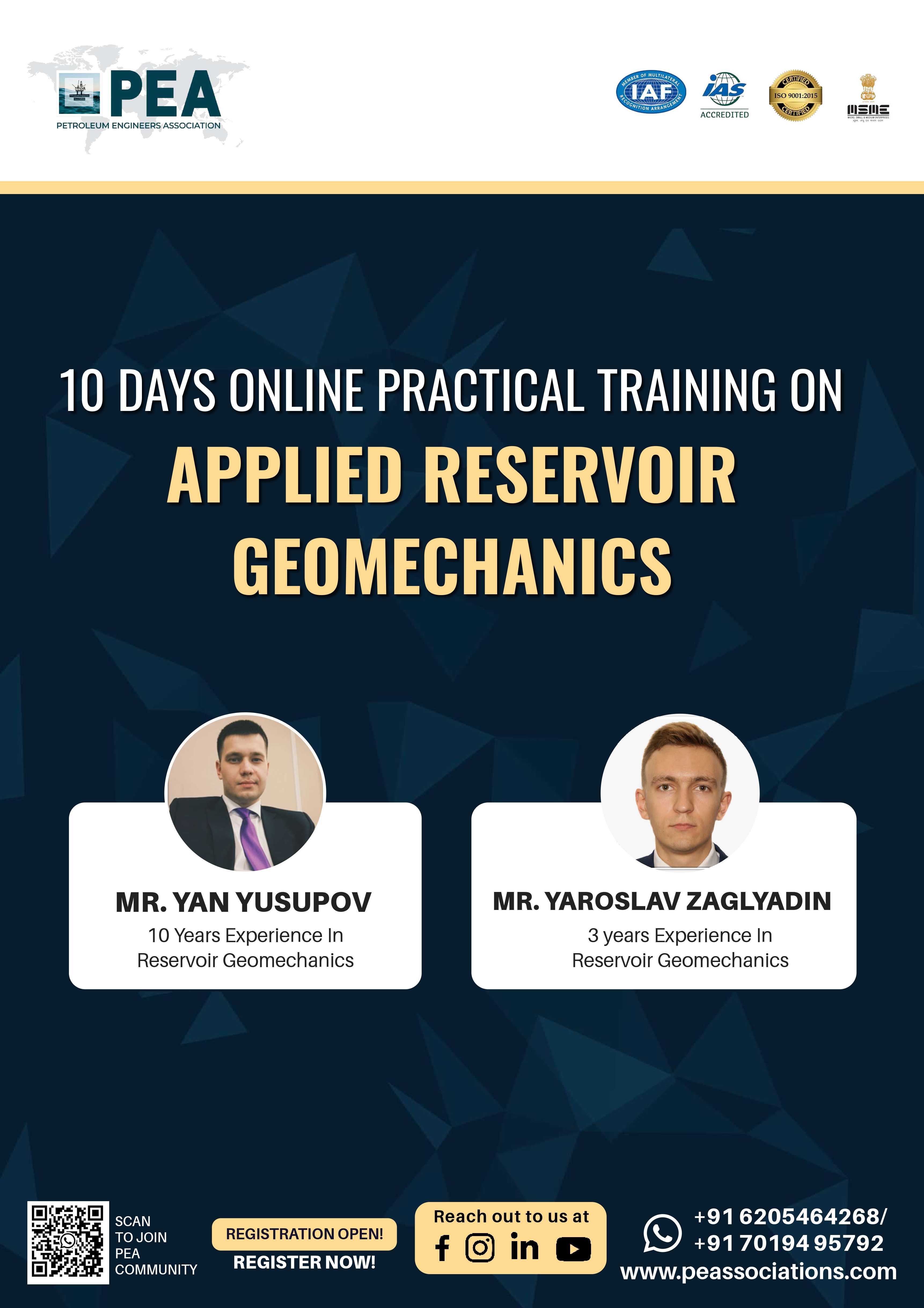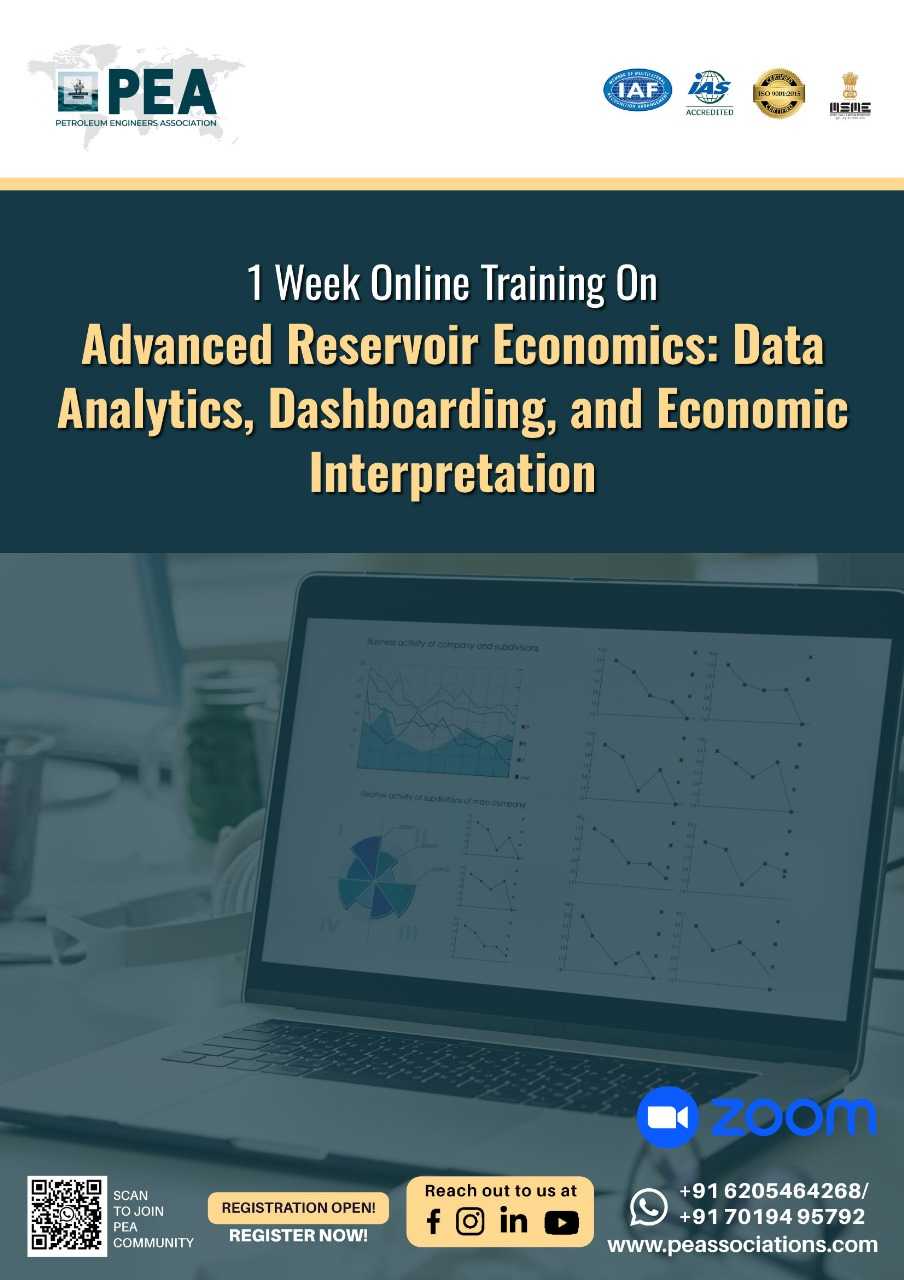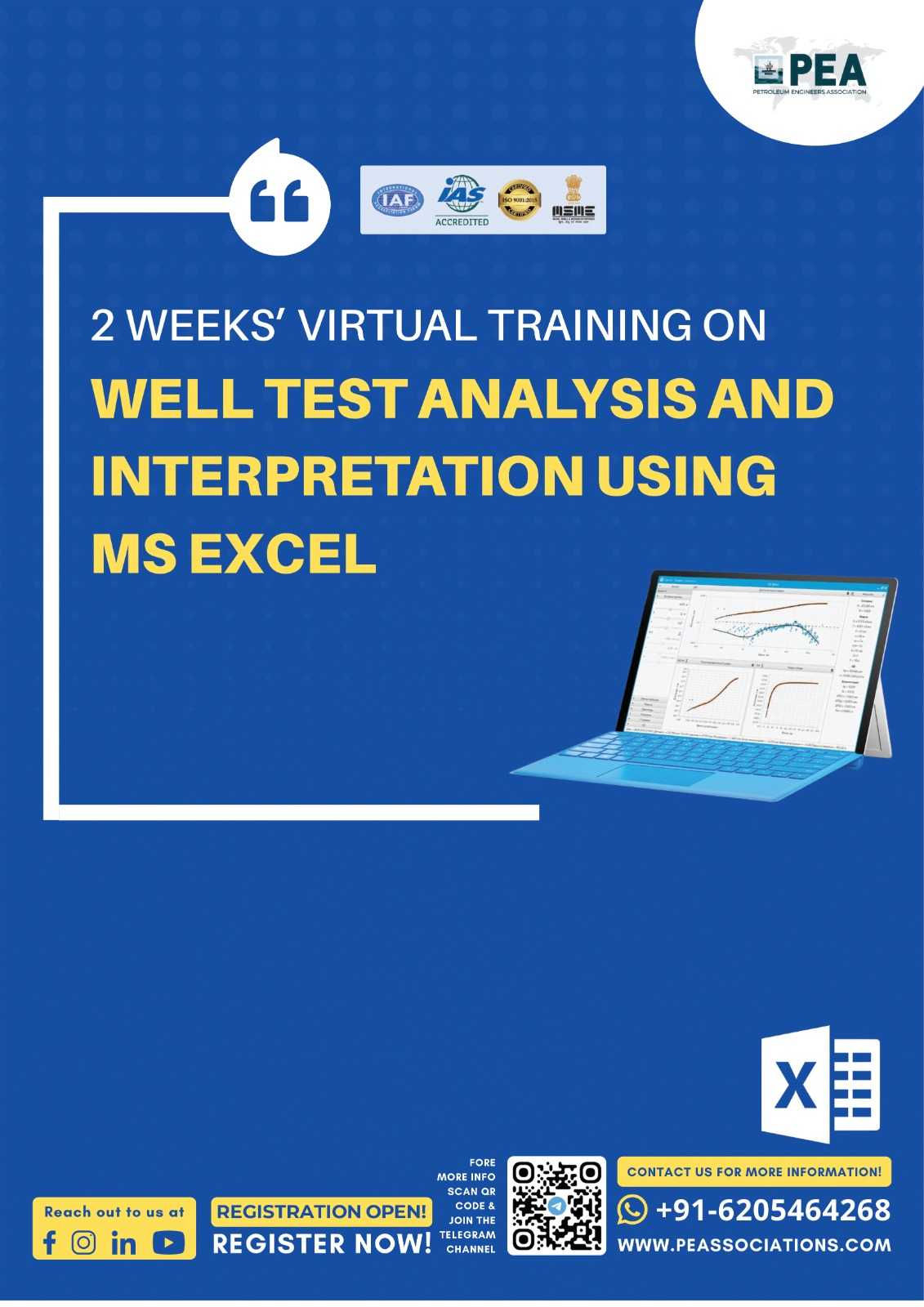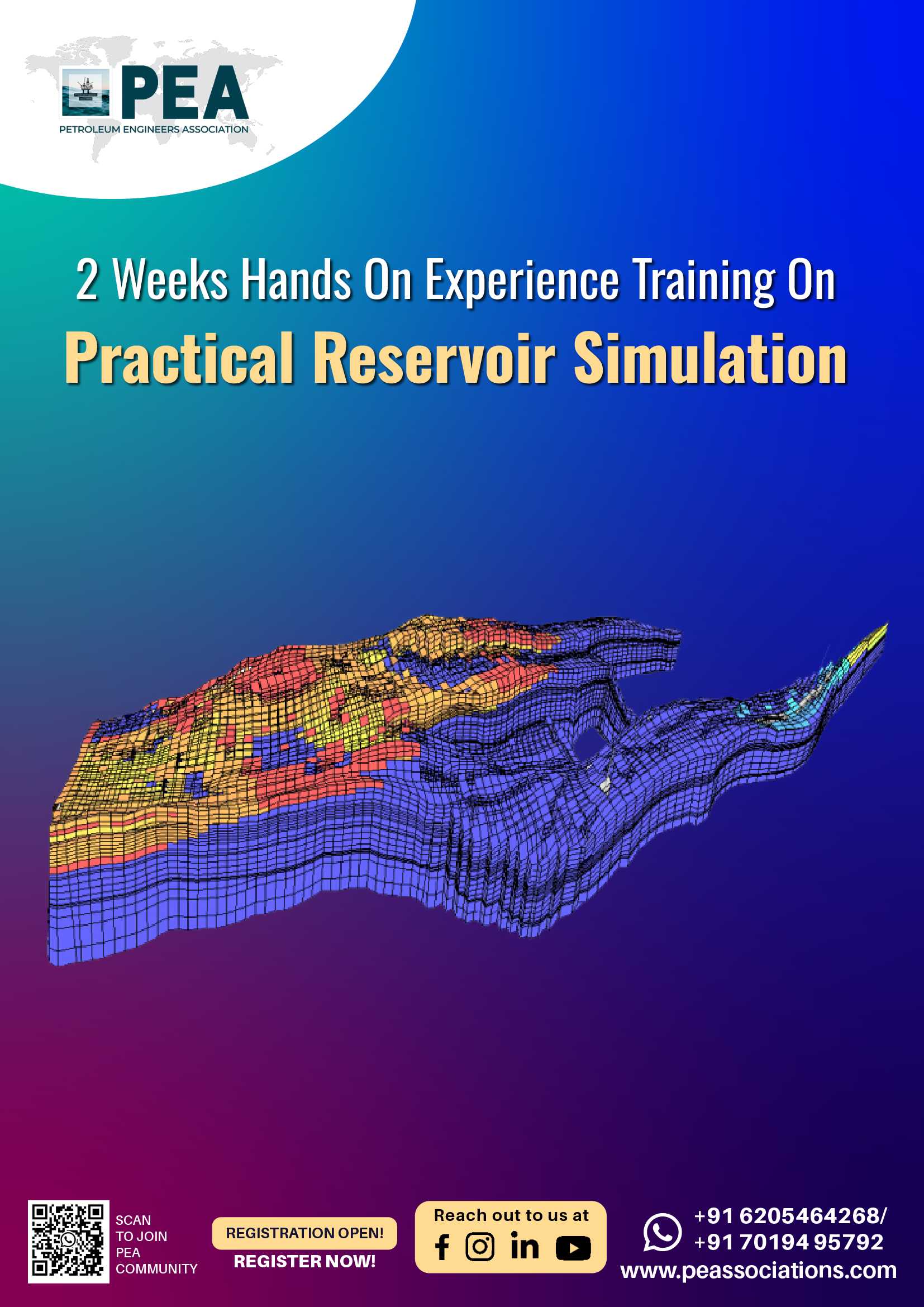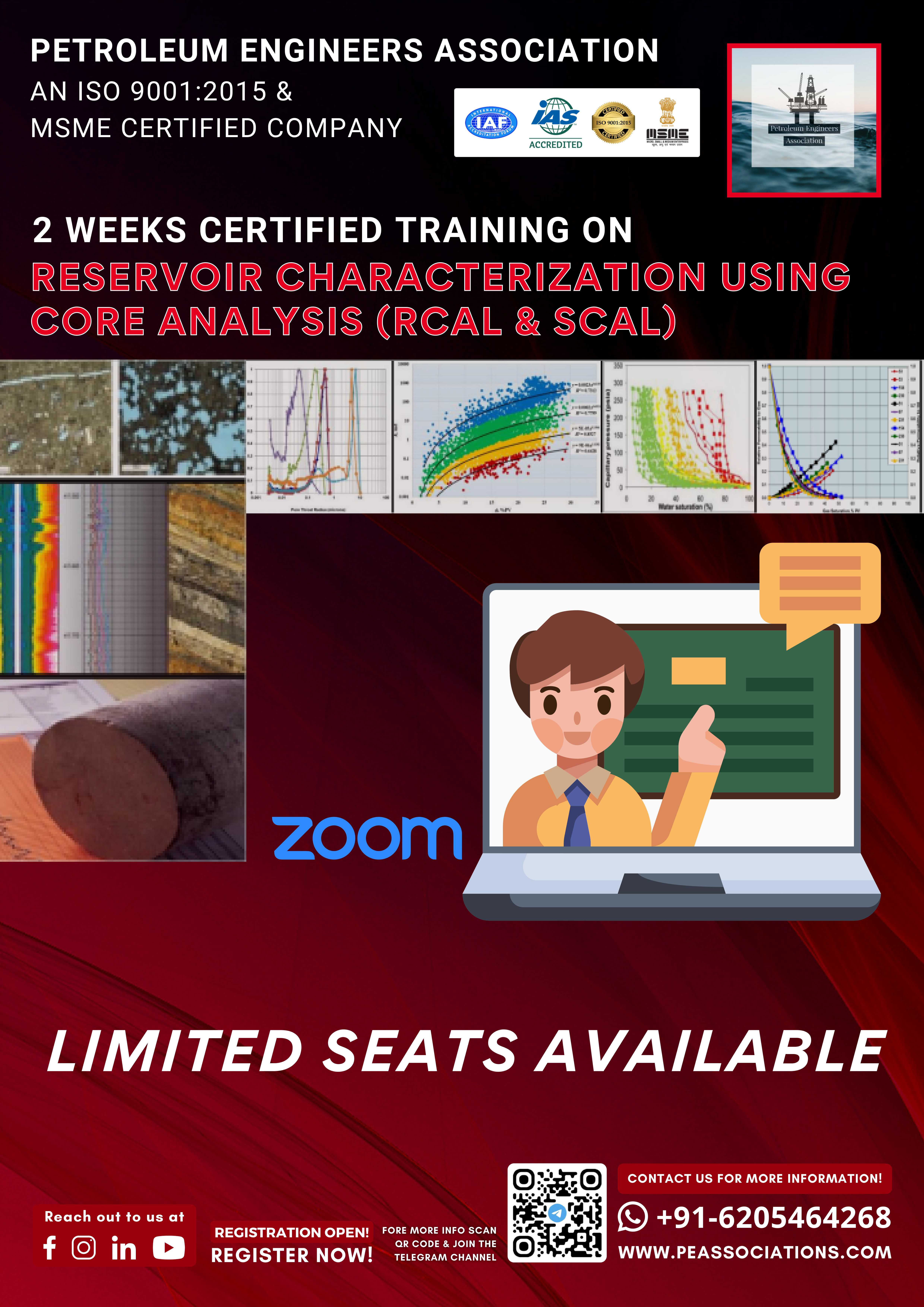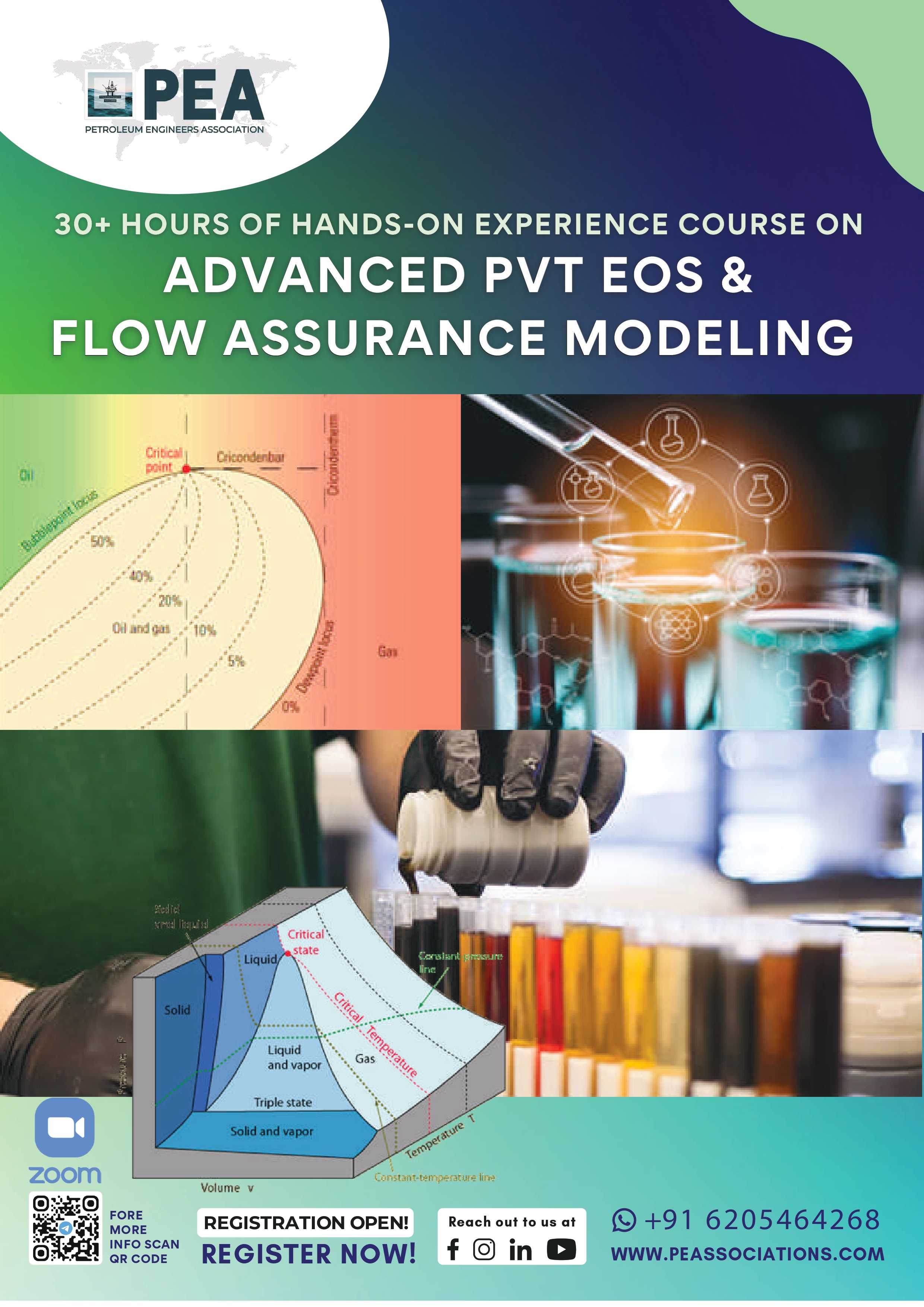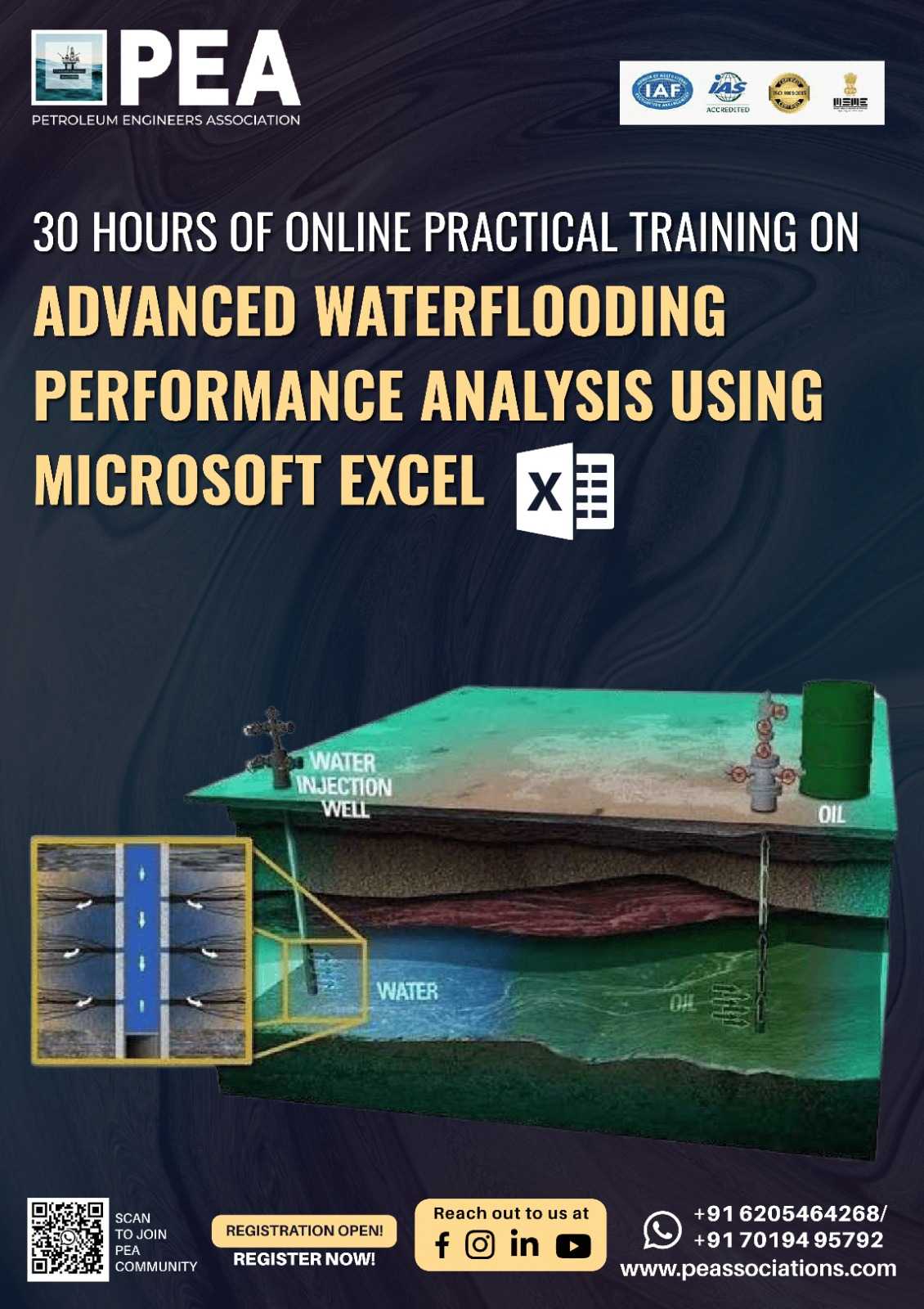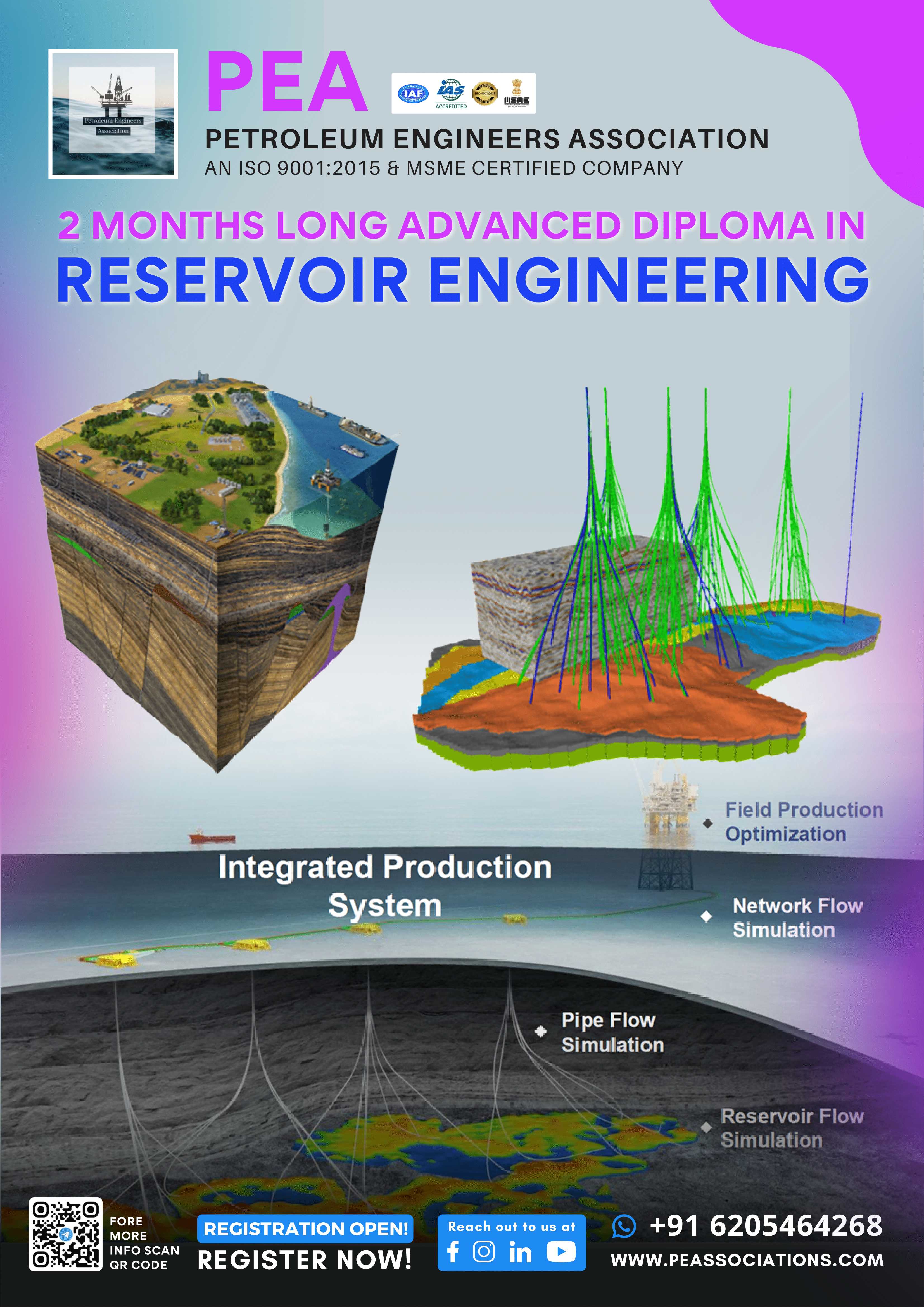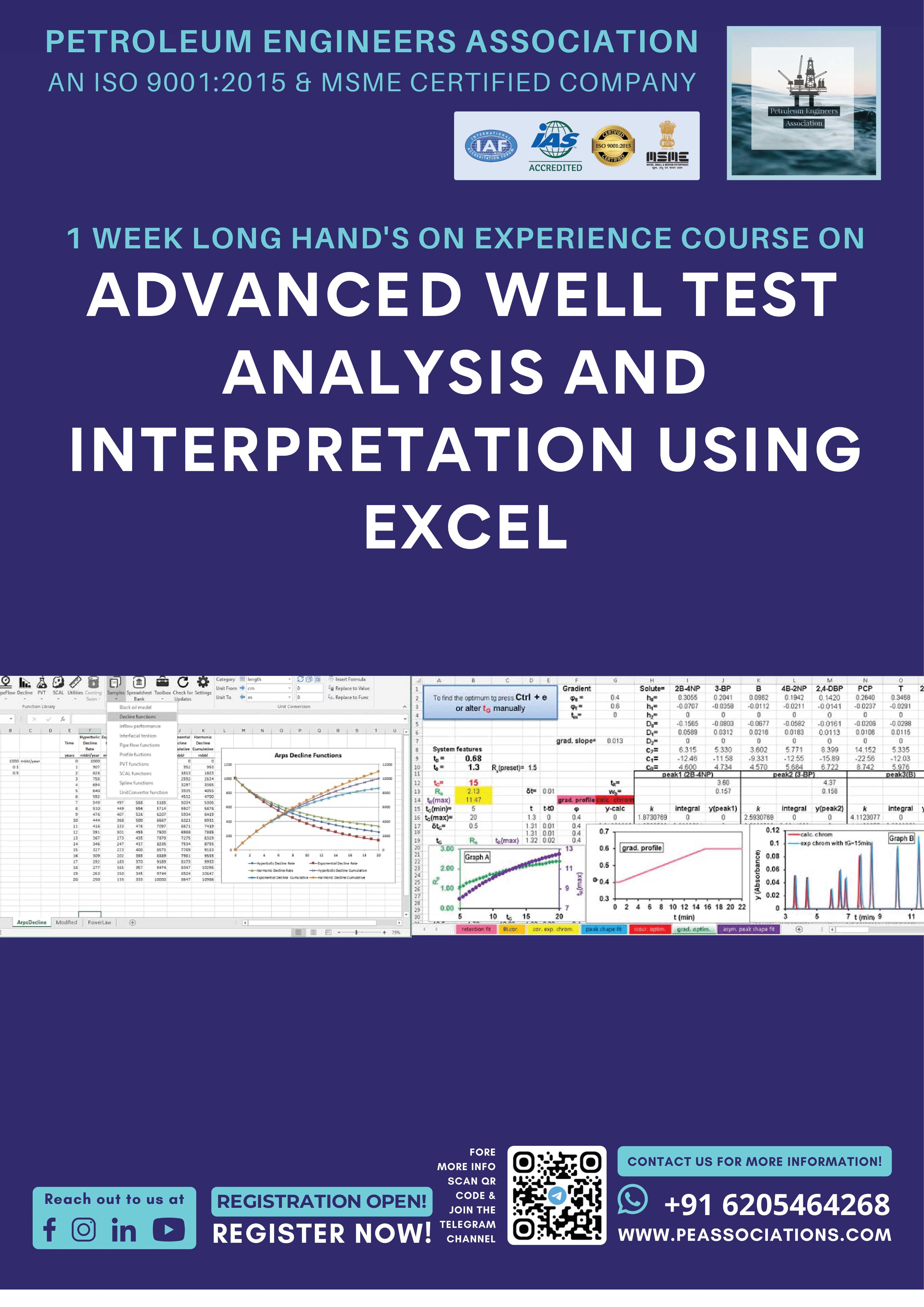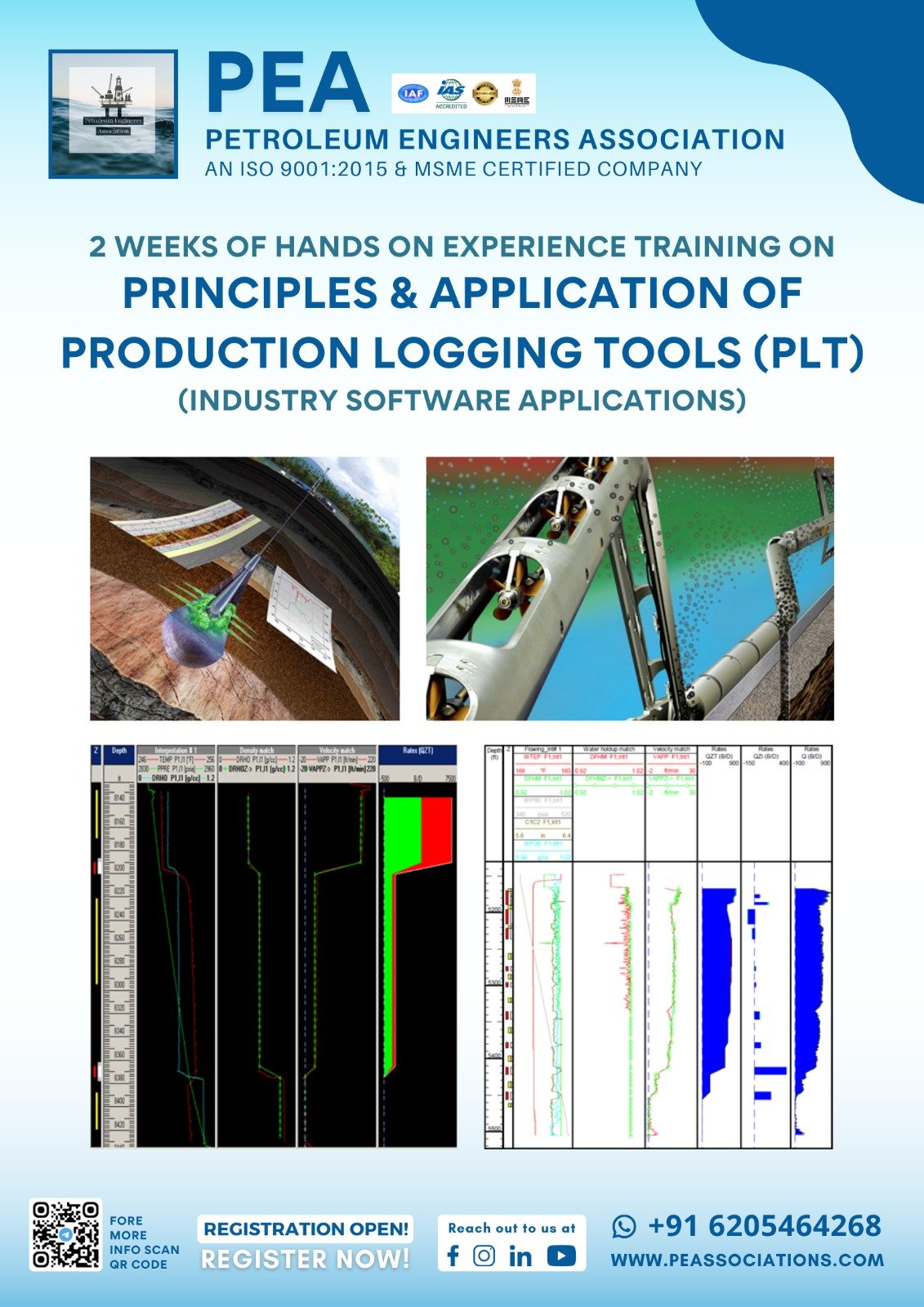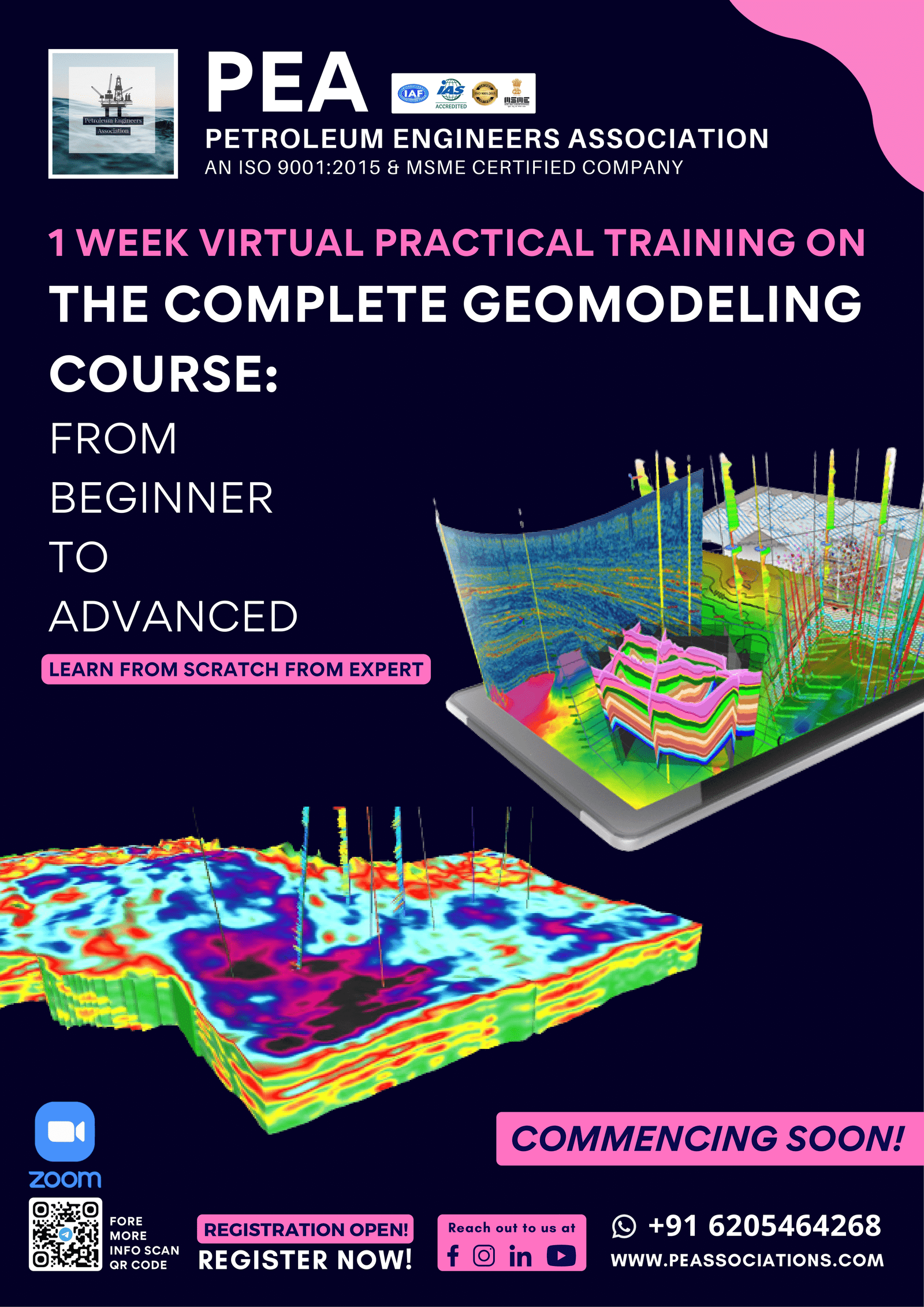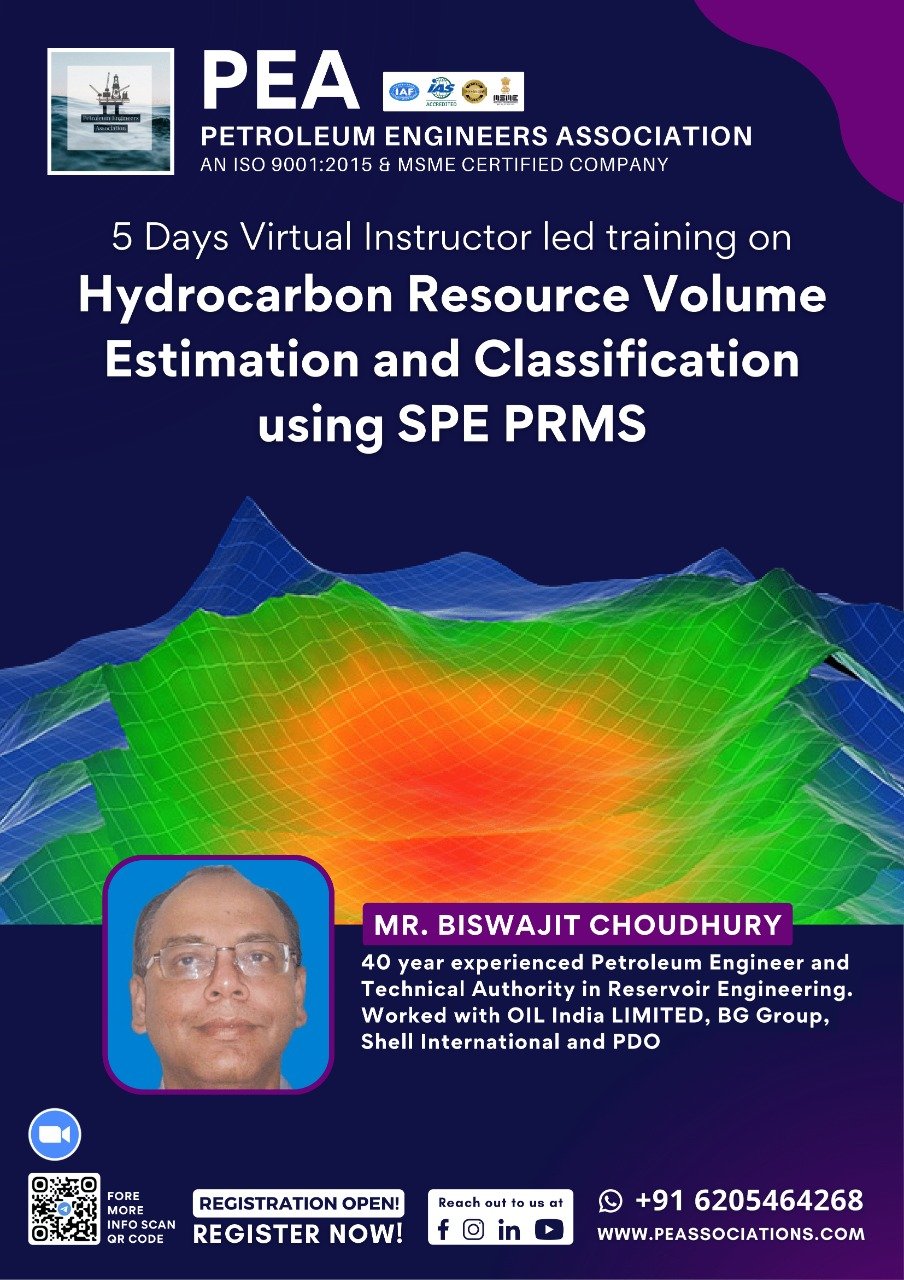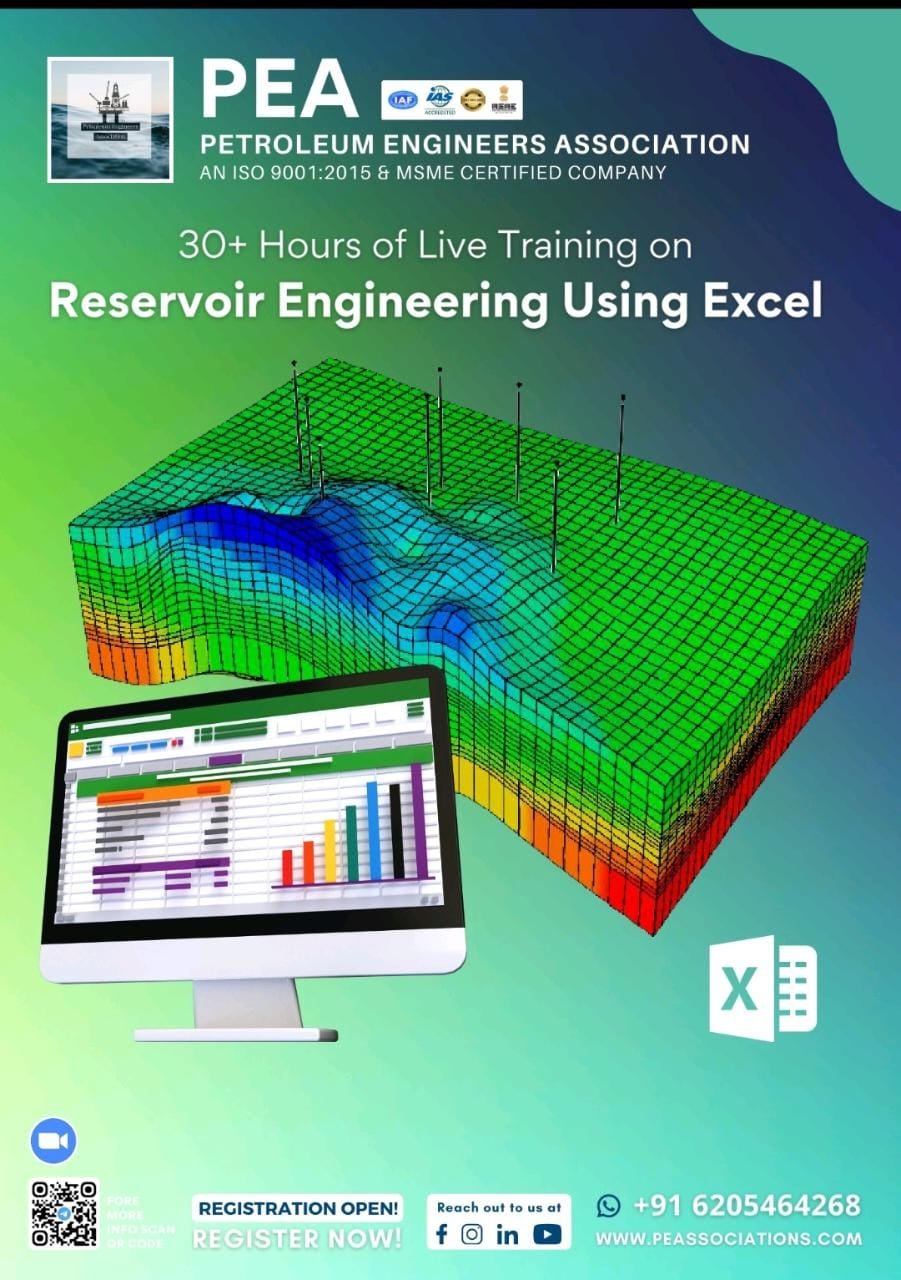Boost your team's skills and your budget! Enjoy group discounts for collaborative learning. Send an inquiry to info@peassociations.com.
Advanced Reservoir Engineering Using MS- Excel
This comprehensive course delves into advanced MS Excel applications in reservoir engineering, equipping participants with the skills needed to tackle complex reservoir evaluations and enhance field productivity. Designed for professionals seeking practical, Excel-driven solutions for reservoir management.
Description
This course provides in-depth knowledge and practical skills for leveraging MS Excel in advanced reservoir engineering applications. With a focus on real-world oil and gas scenarios, participants will learn to analyze reservoir data, perform volumetric calculations, model fluid flow, and optimize recovery using Excel. Through hands-on exercises and industry examples, attendees will gain the confidence to apply these skills directly to their projects, driving efficiency and accuracy in reservoir management.
Excel has become an invaluable tool in reservoir engineering, offering versatile capabilities for data manipulation, analysis, and visualization. In this advanced course, engineers will learn to apply Excel’s powerful features to solve intricate reservoir engineering challenges, from reservoir performance analysis to economic modeling. With a strong focus on practical application, this course will ensure participants leave with a toolkit of Excel-based strategies they can implement immediately.
The course combines lectures, case studies, and hands-on exercises to provide a comprehensive learning experience. Participants will work on real-world problems in Excel, benefiting from guided practice and group discussions that reinforce learning.
This course is ideal for reservoir engineers, petroleum engineers, and technical professionals in the oil and gas sector who wish to deepen their Excel skills for advanced reservoir analysis. It is also beneficial for data analysts and project managers looking to understand the engineering insights behind reservoir data and performance evaluation.
Week 1
INTRODUCTION TO RESERVOIR ENGINEERING
Overview of Reservoir Engineering:
Definition, importance, and role in the oil and gas industry.
Types of Reservoirs:
Understanding different reservoir types and their characteristics.
Reservoir Properties:
Introduction to porosity, permeability, saturation, and their significance.
Phase Behaviour:
Review of hydrocarbon phases and phase diagrams.
Week 2
RESERVOIR ROCK PROPERTIES AND FLUID FLOW FUNDAMENTALS
Rock Properties:
Detailed discussion on porosity, permeability, and capillary pressure.
Fluid Flow in Porous Media:
Understanding Darcy's Law, pressure gradients, and fluid mobility.
Reservoir Rock Classification:
Examination of rock types and their impact on fluid flow
Week 3
RESERVOIR FLUID PROPERTIES AND PVT ANALYSIS
Reservoir Fluids:
Properties of crude oil, natural gas, and water in reservoirs.
PVT Analysis:
Introduction to Pressure-Volume-Temperature (PVT)
analysis and its importance in reservoir characterization.
PVT Equations of State:
Understanding the application of equations of state for fluid behaviour prediction.
Week 4
RESERVOIR DRIVE MECHANISMS AND RECOVERY METHODS
Reservoir Drive Mechanisms:
Study of natural, gas, and water drive mechanisms affecting hydrocarbon recovery.
Reservoir Performance:
Evaluating reservoir performance through production data analysis.
Primary Recovery Methods:
Introduction to natural depletion, water flooding, and gas injection methods.
Week 5
ENHANCED OIL RECOVERY (EOR) TECHNIQUES
EOR Overview:
Explanation of various Enhanced Oil Recovery techniques.
Thermal EOR:
In-depth discussion of steam injection and in-situcombustion processes.
Chemical EOR:
Understanding polymer, surfactant, and alkaline flooding methods.
Week 6
RESERVOIR SIMULATION AND NUMERICAL MODELLING
Reservoir Simulation:
Introduction to numerical modelling and its application in reservoir engineering.
Grid Design and Discretization:
Creating reservoir simulation grids for accurate representation.
Numerical Solution Methods:
Understanding finite difference and finite element methods.
Week 7
WELL TESTING AND PRESSURE TRANSIENT ANALYSIS
Well Testing Fundamentals:
Overview of well testing, pressure buildup, and drawdown tests.
Pressure Transient Analysis:
Analysing well test data to estimate reservoir properties.
Pressure Transient Models:
Application of various models for pressure transient analysis.
Week 8
ADVANCED RESERVOIR ENGINEERING TOPICS
Reservoir Management:
Strategies for effective reservoir management and maximizing recovery.
Reserves Estimation:
Techniques for estimating reserves and resources.
Unconventional Reservoirs: Study of shale gas and tight oil reservoirs.
Reservoir Surveillance:
Introduction to monitoring and surveillance techniques.

